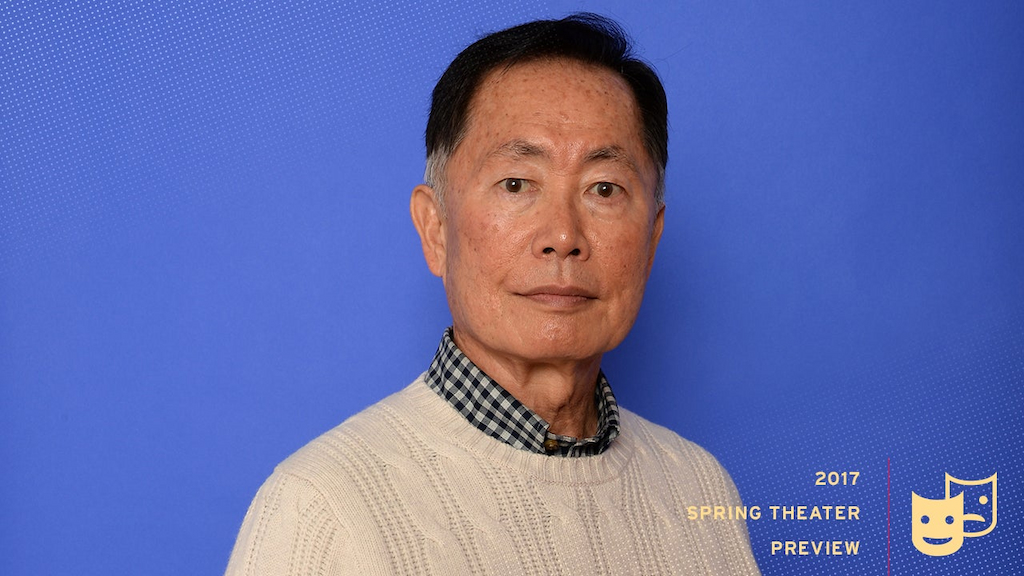The longtime actor opens up to ET about his petition in support of all Muslims and his return to the stage.
A longtime actor on television and stage, over the past six
years George Takei has become a star of a new medium: social media. Through
Facebook and Twitter, the 79-year-old actor -- most notable for his years as Hikaru
Sulu on Star Trek and its subsequent
films -- has become known for his memes and wit, but also, lately, his social
activism. Using the platforms on which he’s cultivated an engaged audience,
Takei has been able to defend Nina Davuluri from racist commentary after she
was named Miss America 2014 and raise money to fund a web series addressing the
Boy Scouts’ (now former) anti-gay policies. Lately, he’s become more outspoken,
defending millions of Americans from President Donald Trump, who Takei believes
is acting out in fear.
“That fear comes from the fact that he’s uninformed,” Takei
tells ET as hundreds of thousands of Americans have responded to the actor’s
Care2 petition calling for citizens to stand up for Muslims in the U.S. In the
wake of Trump’s executive order barring people from seven predominantly Muslim countries
from entering the U.S. for 90 days and banning all refugees for 120 days and
Syrian refugees indefinitely, Takei’s petition has become more urgent as people
attempt to make their voices heard. “This petition is in keeping with that
spirit,” he says, referring to those who immediately flooded airports to
protest the ban or provide legal aid to refugees suddenly unable to pass
through Customs. (The petition has now swelled to over 312,000 signers.)
MORE: 2017 Spring Theater Preview
While the hope and demand for decency among all citizens is
certainly an ideal that resonates with most Americans, the executive order
struck a nerve with Takei, who as a child was imprisoned in a Japanese American
internment camp during World War II. “We have a particular understanding of how
fragile our democracy is,” he says, referring to the last generation of
formerly imprisoned Japanese Americans who are still alive and remember their
stories.
The fact that there are so few left makes Takei worried
about who will carry on their legacy and make sure that their stories are not
only told but remembered by all Americans. “My mission in life is to raise
awareness of that chapter of American history, which too few Americans know
about,” Takei says. “We don’t want this story to fade away.” That is why, in
addition to donating personal items to the Japanese American National Museum,
the actor has spoken at educational and government institutions and developed
and starred in Allegiance, a Broadway
musical based on Takei’s own experiences of internment in the U.S.
It was during that show’s run, from October 2015 to February
2016, that Trump first spoke out against Muslim immigrants. “I immediately
responded to that,” Takei says, extending an open invitation for Trump to come
see his musical. The production even went so far as to reserve a seat for Trump
and set up a ticker counting the number of performances he didn’t show up to.
“He missed 79.”
MORE: George Takei Just Burned an Online Hater With the Best Response Ever
While Allegiance’s
run on Broadway was short-lived, the story struck a nerve with audiences, who
broke attendance records for a one-night-only screening of the filmed
production in December 2016. Buoyed by that success, the film will screen again
on Feb. 19, observed as a Day of Remembrance by the Japanese American community,
just six days after Takei plans to deliver the Care2 petition to the Muslim
Public Affairs Council as well as any congressperson who will accept it. He’ll
even present it to Trump, if the president accepts an invitation to receive it.
“You hope for the best,” Takei says.
In the meantime, Takei will soon start rehearsing for his
return to the stage in the Classic Stage Company’s revival of Stephen
Sondheim’s Pacific Overtures, which
starts performances on April 6. The musical tells the story of two friends
dealing with the westernization of Japan in 1853. While an entirely different
narrative, Takei acknowledges the parallels between that story and what’s
happening today. “Donald Trump being inflicted upon this country and throwing
this country into chaos,” he says, is not all that different from a time when
Japan was forced to open itself up to the outside world and the uproar that
followed. “He’s not aware of the world that we live in.”
